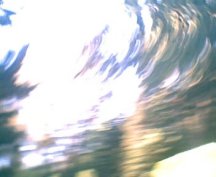 I remember 9/11 of 2001 as though it were today. The day is very vivid for me.
I remember 9/11 of 2001 as though it were today. The day is very vivid for me.It was one of the rare mornings that I was not listening to NPR as I drove to work, which at that time was as a receiving manager for Barnes & Noble. It was an additionally rare morning, in that I didn't turn on NPR as soon as I was in our receiving room. I was unloading pallets in relative silence when someone rang the buzzer for our front doors. It was Diane, one of my coworkers. She was frantic and wild-eyed. She spoke of the two towers of New York City's World Trade Center as having been hit by airplanes and of the collapse of the first tower. I told her that she probably misheard what they were saying on the radio. We both walked rather quickly back to the radio in the receiving room and I turned on KPLU, Tacoma's local NPR station.
The voices of the national commentators were restrained but not calm. There was fear and agitation lurking within their reportage. The second tower collapsed. They recounted it in detail. Soon, another plane crashing into the Pentagon. Then, another plane crashing somewhere in Pennsylvania. Reports of up to ten planes missing from radar. Misinformation. Exaggeration, as though that were even possible after what the world had just witnessed. Flights forced to land at the nearest airports. Airspace shut down over North America. The skies overhead were quiet, eerily quiet, for we were directly under the flight path of many of the flights for both Seatac International Airport and Boeing Field.
The radio was a buzz all day, as was the receiving room. NPR ran all day. Drivers were updating us with the images they had seen of the planes slamming into the towers, of the towers collapsing. Employees were wandering through, talking out their fears and worries. Everyone seemed dazed and numb. I kept waiting for more. More planes, more attacks, a nuclear detonation. I kept waiting for retaliation.
I felt dizzy. I felt sick. I was angry. I was mournful. I prayed. I tried to wrap my mind around the unfathomable, the deranged.
I drove home with my mind in a haze, the sound of NPR reporting as a constant humming in the background.
I didn't see the footage of the attack and its aftermath until I walked in the door. My wife was there with the television repeating the images over and over and over. I remember sitting there for hours afterward, trying desperately to understand, to make some sense of it. It was the most time I had spent continuously watching news coverage since CNN had aired the aerial bombardment of Baghdad in Gulf War I, 1991.
I couldn't dream at the time, although I knew they would come. The flash, the heat wave, the blinding white, the cloud. Fueled by the madness of other men. Fueled by a faith that is no faith, a faith that is without hope.
The dreams roll over me as the wave does in the dreams. All I can see is darkness, the abyss, the Pit. The swirling waters of the Pit. All I can do is cry out with the Psalmist who declares:
Bless the Lord, O my soul, and do not forget his benefits—who forgives all your iniquity, who heals all your diseases, who redeems your life from the Pit, who crowns you with steadfast love and mercy.
—Psalm 103:2-4
But I cannot forget...

No comments:
Post a Comment